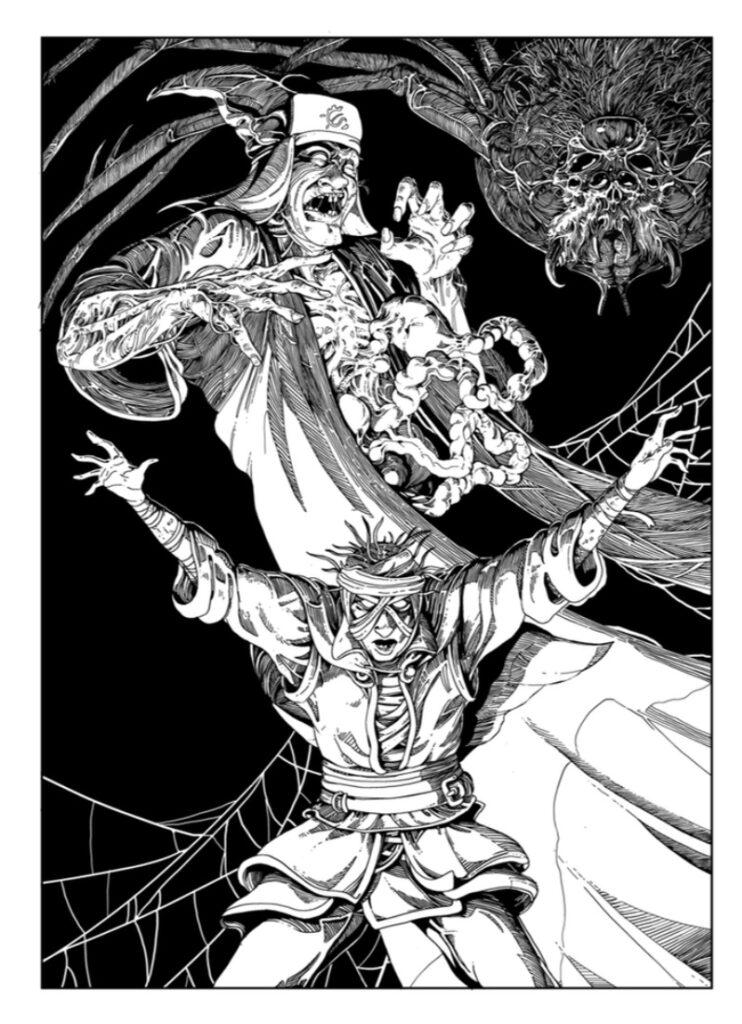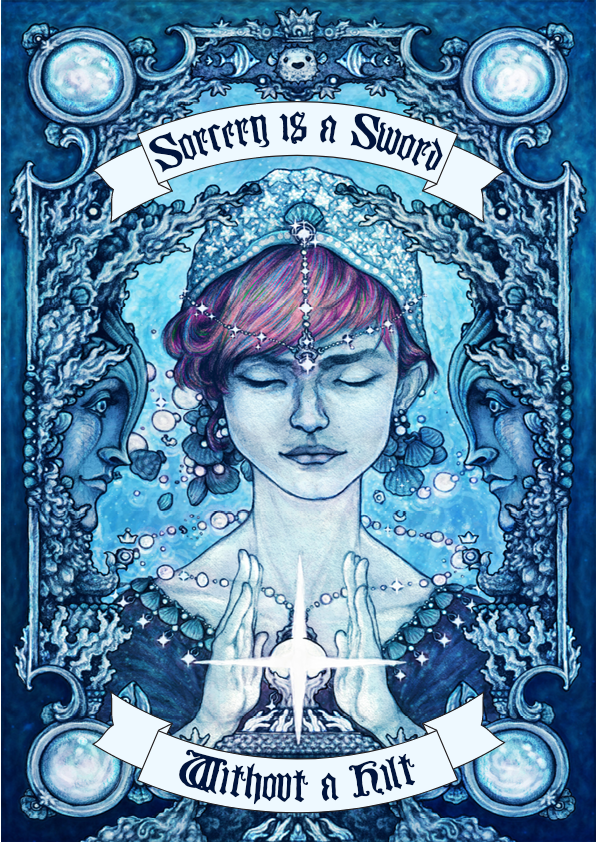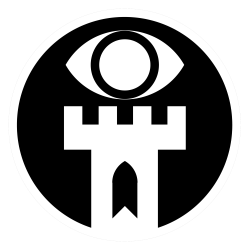Freegan TTRPG degenerates like myself have eaten well this month. Luke Gearing, of Acid Death Fantasy and Big Squirm fame, released a grotty urban violence-and-treasure game called Swyvers. It’s a whole-ass game that asks you for nothing but $0 and about 40 minutes of enjoyable reading. And if that wasn’t enough, Josh McCroo published Sorcery is a Sword Without a Hilt; this is a magic-focused excerpt/preview of his upcoming His Majesty the Worm, which appears to be a tarot-card-driven OSR-style dungeon-crawler.
Both have piqued my interest.
I suspect I’ll have more to say on both projects, but since these are both making the rounds right now (you can read them for yourself) I wanted to talk a little bit about their approaches to magic.
Swyvers: Magic as a Gamble

Swyvers is a game about grotty urbanites doing crime, fleeing into the sewers, and wasting their money. Fittingly, the magic system is driven by the rules of blackjack. Players are dealt two cards then offered a chance to hit or stay. Spells work on a 16-20 and crit on a 21; 15 and under indicates the spell fizzles harmlessly, but a bust opens the door to eldritch powers which man was not meant to yada yada yada.
I like this a lot. Mechanically, it’s one of the game’s highpoints. We’ve talked a bit on the podcast lately about spell systems with wild fail states. Although I appreciate a good chance for campaign-derailing critical failures, some games can be a little flippant about it.
“Oh, are you trying to access a class feature? And you rolled poorly? Uh oh, looks like Sevroth the Destroyer is unleashed on the mortal plane! Roll up new characters while I quickly put together another campaign.”
– Certain OSR games
No, thank you.
Swyvers cleverly avoids this issue because when you initially cast you cannot critically fail. You can only fail or succeed. Now, once you’ve failed, you have a choice. You can side with wisdom, back down graciously, and let the spell fizzle OR…
…you can do what a Swyver would do.
And mammoth campaign-and-character-defining consequences can be fun — as long as the players bring it on, not the dice.
His Majesty the Worm: the Flavour of Magic

Sorcery is a Sword Without a Hilt begins with some solid flavour text. From there, it goes into a discussion about the four worlds (suits) of magic and the various ways they’re drawn into the material plane.
Now, I’ll admit, I typically glaze over at this stuff. Magic systems tied directly to settings always had a straitjacket character to me, and nothing makes me stop reading TTRPG stuff quicker than the unnecessary introduction of a proper noun. That being said, I actually really enjoyed the use of the trope here. It seems fairly well thought out, each suit being well-defined and highly flavourful.
The catastrophe tables here are interesting, defining each suit well. The individual spells are highly mechanical while avoiding numeric definitions; Josh has tweeted a little bit lately about how, in his theory, this makes magic systems more mysterious. An emphasis on components ties magic to the world and offers players good jumping-off points for in-combat roleplaying (LotFP’s coming Nebulith using a similar system to good effect).
I’ve been puzzling over how to keep the mystery in magic lately myself. Blood Prairie, our upcoming horror-western game, definitely hews a little closer to ‘occultism’ than ‘sorcery’. My solution was to GM-face the magic system entirely; players only discover their characters’ potential magical powers as they bargain for them with demonic entities. Side effects, drawbacks, and complications all might go unmentioned by a demon, if the summoner isn’t careful to ask properly.
Comparison
To get to my point, I find it interesting that we have two games using cards as part of their magic systems. One is trying to create a mysterious effect; the other is trying to introduce predictability.
The cultural cache of a tarot deck is doing a lot of heavy lifting for HMTW. Swyvers is trading on the players’ ability to make informed decisions by analyzing how much of the deck has already been used (card counting is encouraged). Yet both seem to succeed in using the same old-school random number generator to two contradictory effects.
The card/dice divide interests me. On one hand, not many people out there are using dice in the range of d52 to d78s. So off the bat, cards would appear to be the more random option. The suits add an additional layer of information, allowing them to also function as a two-in-one d4 and d13 combo. Yet dice are random in a way cards are not; without shuffling between every use, a deck is incapable of delivering the same result twice in a row. Additionally, each time a card is drawn, it limits the possibilities left in the deck, allowing savvy players to forecast potential results.
Cards have something else that differs them from dice; they are much larger. It may sound flippant, but I’m being serious. A die only has a fraction of a cm2 on each face, sometimes barely enough to display its number. Cards on the other hand can deliver that information complete with an image. In the case of a Tarot deck, that image is encoded with a crap-ton of western esoteric symbolism – perfect for giving magic vibes.
The Twitter account for @riseupcomus was fairly explicit the other day about attempting to avoid numeric descriptors in an effort to keep the magic alive. To quote:
“When you know a fireball is always 5′ x 5′ squares, magic becomes a math equation and not a spell.
-@riseupcomus
Spells should have limits like “the circumference of a graveyard” or “as far as this bowshot” or “for a year and a day.” “
And Sorcery is a Sword Without a Hilt serves that fairly well. I didn’t see a spell that had an AoE ‘the circumference of a graveyard’ or anything so hard to adjudicate, but perhaps that’s for the best. I don’t want to talk too much about the system; after all, I haven’t played it, and I’ve only read a fraction of the unreleased rules. But I do suspect that the deck being used will go a long way to determining whether this game sinks or floats. Rider-Waite? Thoth? One of the modern decks you’d buy at a Spencer’s Gifts?
I do wonder, however, how long the novelty will last. If you use the system for long, will you start to glaze over the symbolism and treat the deck as a cumbersome and complicated type of die? I’m not sure, but I look forward to playing and finding out.
Anyways, if you’d like to weigh in on these card-based magic systems, it’s easy to do so. Just download them from the links above and comment your thoughts below. Easy!
